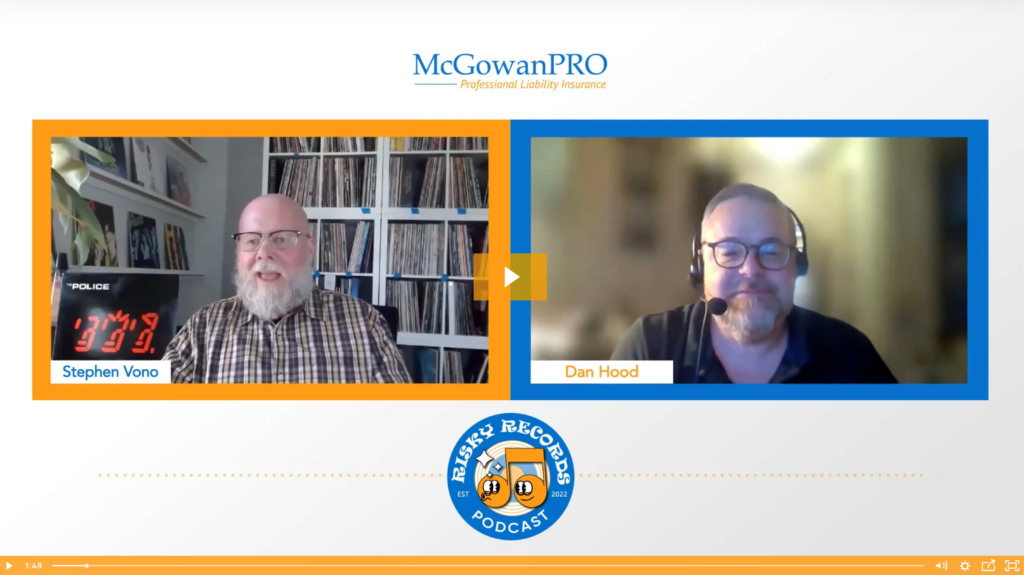In this episode of Risky Records, John Pastore from Integrated Partners and I discussed the benefits of accounting firms partnering with advisors for investment advisory services. John emphasized clear communication, transparency, ongoing dialogue, and adapting to the evolving accounting industry.
To close out the session, we put on David Bowie’s Changes One album.
Changes to the accounting industry
Accountants have had to deal with some tectonic shifts in the industry over the past few years. Compliance continues to evolve in new and complicated ways. Mergers and acquisitions continue to reshape the market, with private equity buying out smaller CPA firms. Firms of all sizes find themselves struggling to survive and thrive. CPAs strive to accomplish more tasks with fewer resources without sacrificing the quality of their services.
As John said, “Firms are outsourcing now. They’re looking at their practice, and they just got through two of the hardest years that they’ve ever had, but perhaps the most profitable. And now, there are more partners that are thinking about retirement, and there are fewer people coming into it.”
Accounting firms must find new ways to generate income streams in response to this challenging market.
Also read: Technology Risk Management for Accounting Firms and CPAs
The value of partnering with an investment firm
It only makes sense that CPAs would want to incorporate adjacent services, such as investment advisory, into their firm’s portfolio. However, accountants must be cautious when incorporating new offerings. A firm can face stiff regulatory consequences if launched or executed incorrectly, say with improper training or licensure.
Partnering with an investment advisory firm can generate a win-win scenario. Integrated Partners specializes in this offering. When partnering with CPAs, Integrated Partners handles compliance, marketing, and financial planning, allowing accountants to focus on their expertise. Additionally, it creates a revenue-sharing opportunity as a new income stream.
John said, “We started as a smaller firm, and we’re just so proud that our President was nominated for CEO of the year. Our RIA [Registered Investment Advisory] just got recognized in Barron’s, and we’re tipping the skills at over $15 billion, and our Chief Implementation Officer, Andree Mohr, just got recognized as one of the rising stars in the industry. So, we just have a fantastic team, and I’m very proud of them.”
Compliance and risk management when integrating new CPA services
No new venture is without risk, and incorporating investment advisory services into a CPA firm is no different. John highlighted several points to keep in mind when considering partnering with an investment firm:
-
- Disclosure and transparency – It is important to be upfront about how the payment and revenue-sharing model works. A clear agreement letter can spell out these areas in black and white.
-
- Ensure roles are clearly defined – John mentioned that clients can be confused when they misunderstand which service provider is acting on their behalf, the CPA or the financial advisor. He said, “You don’t want to get into that murky water, and I think there’s a lot of danger in that area.”
-
- Fiduciary focus – John said, “When you act as a fiduciary, you put the client’s needs, wants, and desires first. It’s a good place to start. So I think it’s acting as a fiduciary and then leading with a plan, is probably the last piece to that liability puzzle that we make sure that we focus on.”
I added that when discussing risk management with accounting firms, there are five key points to address:
-
- Due diligence
-
- Client screening and transparency
-
- The engagement letter
-
- Background checks
-
- Ongoing communications
Also read: Preparing for the Worst: Disaster Data Recovery and Written Information Security Plans
The importance of ongoing communication
Not only is it essential to establish clear communication from the get-go, between the clients, CPAs, and financial advisors, but it is critical to maintain open, honest communications over time.
John elaborated, “We are guests in the CPA’s house. So we want to make sure that we don’t come in and tell the CPAs what to do, but with over 20 years of experience, we know what to do. So we bring a laundry list of ideas to the table, and we let them select what they’re going to do in the first 90 days, but I think that’s where we start to separate ourselves from our competition.”
Defining risk
I said, “If [CPAs] do their own investment advisory services, it adds to their risk. And when I see that people are partnering with somebody like Integrated Partners, I know, and in my conversations with the underwriters, that it lowers their risk.” I noted that purchasing professional liability insurance for CPA services covers claims that might come up. Additionally, CPAs should confirm that any investment or similar partners have appropriate coverage. John said, “We keep a very high-limit policy for all of our solicitors.”
John concluded by saying, “If you ask me what I think risk is, risk is not changing to meet the challenges that are in front of you… So, I think the biggest risk is hoping that things will get better instead of actually taking action.”
McGowan PRO has over twenty-five years of experience helping CPAs and their partners proactively manage risk and compliance while finding new ways to succeed. Contact us to learn more or reach out to me directl.


